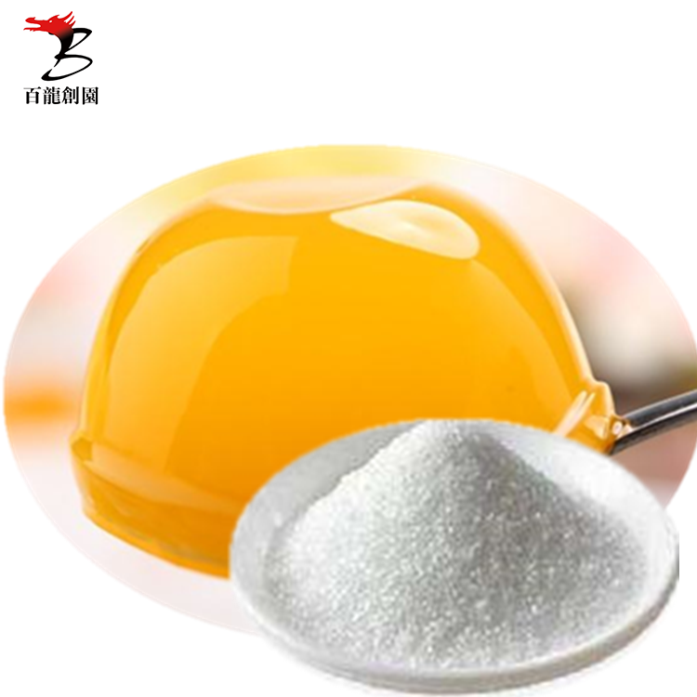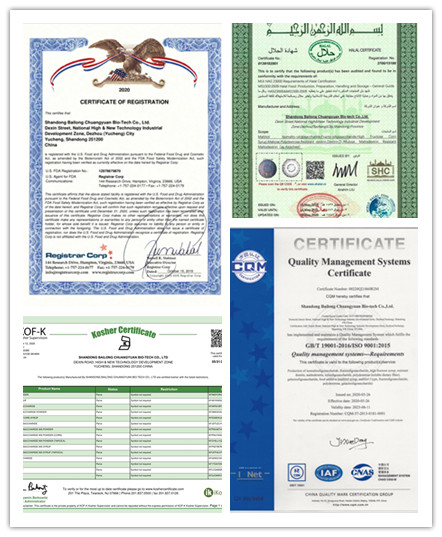| Model: | Isomaltulose |
|---|---|
| Brand: | sdblcy |
| Origin: | Made In China |
| Category: | Agriculture & Foods / Processed Food / Sugar |
| Label: | isomaltulose powder , healthy sweetener P , Palatinose for low s |
| Price: |
US $2
/ kg
|
| Min. Order: | 200 kg |
| Last Online:16 Oct, 2020 |
Food ingredient isomaltulose powder healthy sweetener Palatinose for low sugar
Isomaltulose
| Names | |
|---|---|
| IUPAC
6-O-α-D-Glucopyranosyl-D-fructose |
|
| Other names
Palatinose |
|
| Identifiers | |
|
CAS Number |
|
|
3D model (JSmol) |
|
| ChemSpider |
|
| ECHA InfoCard | 100.033.878 |
| EC Number |
|
|
PubChemCID |
|
| UNII |
|
|
CompTox Dashboard(EPA) |
|
| show
InChI |
|
| show
SMILES |
|
| Properties | |
|
Chemical formula |
C12H22O11 |
| Molar mass | 342.297 g·mol−1 |
|
Except where otherwise noted, data are given for materials in their standard state (at 25 °C [77 °F], 100 kPa). |
|
Isomaltulose is a disaccharide carbohydrate composed of glucose and fructose. The glucose and fructose are linked by an alpha-1,6-glycosidic bond (chemical name: 6-0-α-D-glucopyranosyl-D-fructose). Isomaltulose is present in honey and sugarcane extracts. It tastes similar to sucrose (table sugar) with half the sweetness. Isomaltulose, also known by the trade name Palatinose, is manufactured by enzymatic rearrangement (isomerization) of sucrose from beet sugar. The enzyme and its source were discovered in Germany in 1950, and since then its physiological role and physical properties have been studied extensively.Isomaltulose has been used as an alternative to sugar in foods in Japan since 1985, in the EU since 2005, in the US since 2006, and in Australia and New Zealand since 2007,besides other countries worldwide. Analytical methods for characterization and assay of commercial isomaltulose are laid down, for example, in the Food Chemicals Codex. Its physical properties closely resemble those of sucrose, making it easy to use in existing recipes and processes.
Isomaltulose is hydrogenated to produce isomalt, a minimally digestible carbohydrate that is used as a sugar replacer, for example in sugar-free candies and confectionery.

In nutrition, isomaltulose is a source of food energy, providing the same amount of energy as sucrose. Like sucrose, isomaltulose provides sweetness to foods, but isomaltulose is only about half as sweet as sucrose. In food preparation and processing, both isomaltulose and sucrose have similar characteristics allowing recipes that use sucrose able to use isomaltulose instead or together.
Isomaltulose is used in foods, drinks and health products owing to several of its properties. It is used in foods and beverages, where it provides a natural sucrose-like sweetness profile with a sweetening power about half that of sucrose, and no aftertaste.It has very low moisture absorption (hygroscopy), giving it free-flowing properties in instant powders, which because of their low risk of lumping can easily be used in drinks and other instant products. It is highly stable during processing, including acidic conditions and environments where bacteria might grow. In sports beverages, for instance, isotonicity (osmotic pressure equal to that of fluids in the body) can be maintained during storage over the beverage's shelf-life.
Isomaltulose finds application in baked goods, pastry glazings and icings, breakfast cereals, cereal bars, dairy produce, sugar confectionery (e.g. chocolates, jellies, chewy confections and chewing or bubble gum), frozen desserts, fruit-juice beverages, malt beverages, sports beverages, energy drinks, instant drinks, and special and clinical nutrition feeds.
Isomaltulose in permitted for use in foods and drinks in many regions worldwide. For example, it is generally recognized as safe (GRAS) by the U.S. Food and Drug Administration is approved as a novel food by the European Commission, and in Japan has the status FOSHU (food for specific health use).


Related Keywords
Palatinose for Low Sugar , Isomaltulose Powder Healthy Sweetener , Food Ingredient Isomaltulose Powder